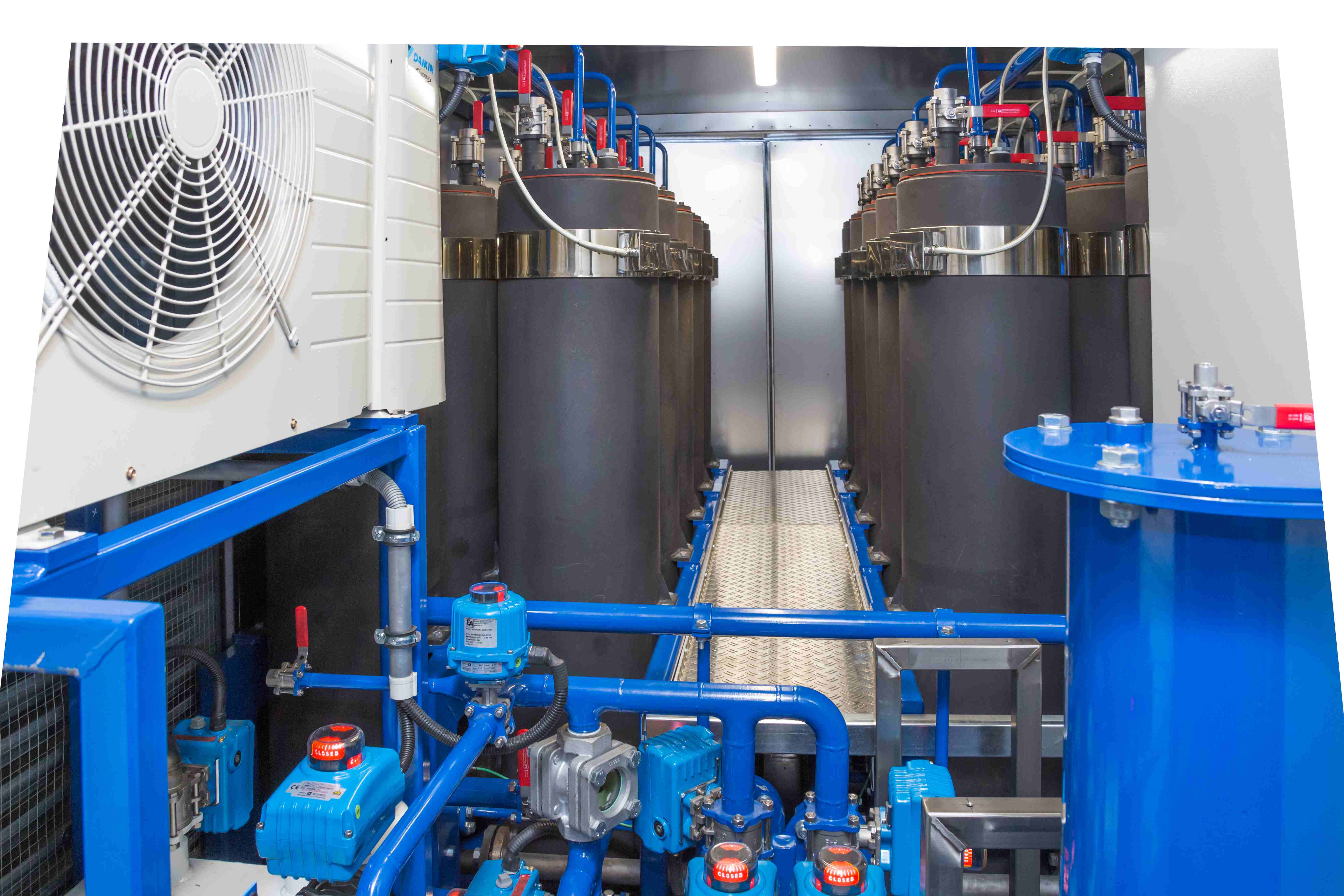Just How Regenerated Transformer Oil Prolongs Transformer Life Expectancy
The function of transformer oil is vital in making certain the integrity and durability of transformers, serving as both an insulator and coolant. Regenerated transformer oil uses a compelling service to boost these functions by successfully removing dangerous impurities that jeopardize efficiency. Via a meticulous regeneration process, the oil's dielectric properties and thermal security can be brought back, resulting in substantial improvements in operational efficiency. Comprehending the details of this procedure and its wider ramifications for transformer upkeep reveals a pathway to not only expand lifespan however additionally optimize expenses in power management systems.
Importance of Transformer Oil
Transformer oil plays an essential duty in the effective procedure of electrical transformers. It mostly functions as a protecting tool, making sure and stopping electric discharges that components operate safely under high voltage conditions. The oil's dielectric homes are essential to preserving the integrity of the transformer, as they reduce the risk of failures that could cause tragic cases or costly downtimes.
In enhancement to its shielding capabilities, transformer oil also functions as a coolant. As transformers run, they produce heat that must be dissipated to avoid overheating and succeeding damages. The oil circulates within the transformer, moving and soaking up warmth away from essential parts, therefore preserving ideal operating temperature levels.
In addition, transformer oil works as a barrier versus moisture and pollutants, which can jeopardize the efficiency and durability of the transformer. Its chemical buildings assist in neutralizing acids and other by-products that may develop over time, adding to the total health of the electrical system.
Benefits of Regenerated Oil

Additionally, regenerated transformer oil has a lower level of impurities, including fragments and pollutants that can weaken performance. This pureness not only improves the oil's thermal conductivity yet likewise expands the operational life expectancy of transformers by lessening overheating risks. The boosted thermal stability of restored oil guarantees consistent efficiency also under high operating temperatures, which is essential for preserving transformer performance.
One more advantage is its environmental effect. Restored oil advertises sustainability by lowering waste and the demand for brand-new oil production, thereby decreasing the carbon footprint connected with transformer maintenance. Transformer Oil Regeneration. The longevity of restored oil translates to lower maintenance costs over time, as fewer oil adjustments and much less constant tools downtime are required.
Process of Oil Regrowth
The regeneration of transformer oil entails a systematic process developed to recover the oil's original homes and enhance its efficiency. This procedure usually begins with the removal of the utilized oil from the transformer, which is after that based on different purification techniques.
The very first step in the regrowth process is the purification, where strong pollutants such as dust, sludge, and metal particles are gotten rid of. This is typically followed by vacuum cleaner distillation, which assists to get rid of dampness and volatile compounds, thus boosting the oil's dielectric strength.

Effect On Transformer Performance
Recovering the properties of regenerated transformer oil considerably influences the overall efficiency of transformers. Enhanced dielectric stamina is just one of one of the most important benefits, as it permits far better insulation and minimizes the possibility of electrical breakdown. This improvement leads to an extra like it steady procedure under high voltage conditions, inevitably bring about enhanced efficiency.
Furthermore, the removal of pollutants and destruction items throughout the regrowth procedure reduces the danger of getting too hot. Cleanser oil promotes better warm dissipation, which is vital for preserving ideal operating temperatures. Therefore, the thermal performance of the transformer is enhanced, enabling greater lots without endangering dependability.
In addition, the chemical security of restored oil ensures prolonged operational life. It withstands oxidation and deterioration, minimizing the frequency of maintenance interventions and oil replacement. This security not just adds to boosted performance but also lines up with sustainability goals by lessening waste.
Future of Transformer Maintenance
As improvements in innovation proceed to improve the landscape of electric design, the future of transformer upkeep is positioned for significant transformation. The integration of clever innovations, such as IoT sensing units and anticipating analytics, enables real-time surveillance of transformer wellness, enhancing the capability to preemptively address issues prior official statement to they rise into significant failures. This positive approach not only takes full advantage of functional performance however likewise expands the life-span of transformers.
Furthermore, the application of expert system (AI) in information analysis permits even more accurate fault discovery and medical diagnosis. By leveraging artificial intelligence formulas, maintenance teams can identify patterns in operational data that human analysts might neglect, resulting in even more educated decision-making.
Additionally, the fostering of eco-friendly techniques, including using regenerated transformer oil, is set to redefine maintenance procedures. This sustainable technique not only decreases ecological impact but also boosts the general wellness of the transformer.
Finally, the change towards automation in upkeep procedures is expected to enhance operations, reduce downtime, and reduced costs. As these advancements remain to advance, the future of transformer upkeep will undoubtedly become more reliable, trustworthy, and lasting, making sure the honesty of vital electric facilities.
Final Thought
The utilization of regenerated transformer oil dramatically improves the operational long life of transformers. Ultimately, the adoption of regenerated oil stands for a critical advancement in transformer upkeep, making sure optimum performance and sustainability in the administration of electrical framework.
The function of transformer oil is critical in making sure the reliability and long wikipedia reference life of transformers, offering as both an insulator and coolant.Transformer oil plays an essential role in the efficient procedure of electric transformers. Restored oil promotes sustainability by lowering waste and the requirement for brand-new oil manufacturing, thus decreasing the carbon impact connected with transformer maintenance.Restoring the residential or commercial properties of regenerated transformer oil dramatically influences the general efficiency of transformers.The utilization of regenerated transformer oil considerably enhances the operational long life of transformers.